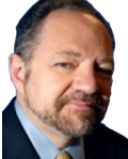Neuroscience
Should Teachers Learn Neuroscience?
The Brain Boom in the Classroom
Posted June 6, 2012
The early 20th century progressive education movement, led by the American philosopher John Dewey, urged that childhood education needed to learn the lessons about the psychology of learning, a field that was then in its infancy. For example, the progressives encouraged the adoption of psychometrics like intelligence tests. The goal was to teach critical thinking skills to all children to help level the playing field between the few rich and the many poor during the Gilded Age, and they opposed contemporary efforts to limit academics to the privileged few while providing most young people with vocational skills.
Sound familiar? One hundred years later we’re in a vigorous and sometimes angry societal debate about the “one-percenters”. Can modern, neuroscience-based psychology help teachers prepare their students for the tough competition ahead so they can have a chance to realize the American dream? More to the point, should teachers learn some neuroscience themselves?
Top brain researchers are weighing in on the relevance of neuroscience for the typical syllabus of teacher education. As quoted in Education Week, British neuroscientist Paul A. Howard-Jones says that “a neuromythology has arisen in schools” because teachers know so little about the brain. The article goes on to note reports that some teachers think their students’ brains will shrink if they don’t drink enough water. A more sophisticated error is that different brains have different “learning styles,” when the fact is that most brains operate pretty much the same. Not mentioned in the article, but one I’ve heard from very bright people, is the old saw that we only use a small percentage of our brains. Not true.
So should “brain myths” be addressed in teacher education? Writing in The Washington Post, University of Virginia education professor Daniel Willingham agrees the myths should be exploded in teacher training but not that teachers themselves should be expected to become neuroscience experts. These resources should be, and normally are available in institutions and school districts, he argues.
Meanwhile my University of Pennsylvania colleagues Cayce Hook and Martha Farah published a paper in the journal Neuroethics just a few months ago called, “Neuroscience for Educators: What are They Seeking and What are They Finding?” Hook and Farah retrace the 20-year old history of neuroeducation and then describe the results of interviews with 13 educators who had attended a conference on “Learning and the Brain”. Their findings: The teachers wanted to know more about the brain mainly out of personal curiosity rather than to apply this knowledge to the classroom. However, they also found that “learning about neuroscience can help educators maintain patience, optimism and professionalism with their students, increase their credibility with colleagues and parents, and renew their sense of professional purpose.”
Whatever the outcome of the current discussion, we would do well to recall the remarks of the Harvard philosopher and psychologist William James in one of his famous “Talks to Teachers” in the 1890s. While providing his audiences with an update on the latest scientific findings, this forerunner of modern neuroscience also reminded them that psychology will not teach a single, unique way of teaching, that “Psychology is a science, and teaching is an art….To know psychology, therefore, is absolutely no guarantee that we shall be good teachers.”
But, James would surely agree, it might prevent teachers from making their students drink too much water.


